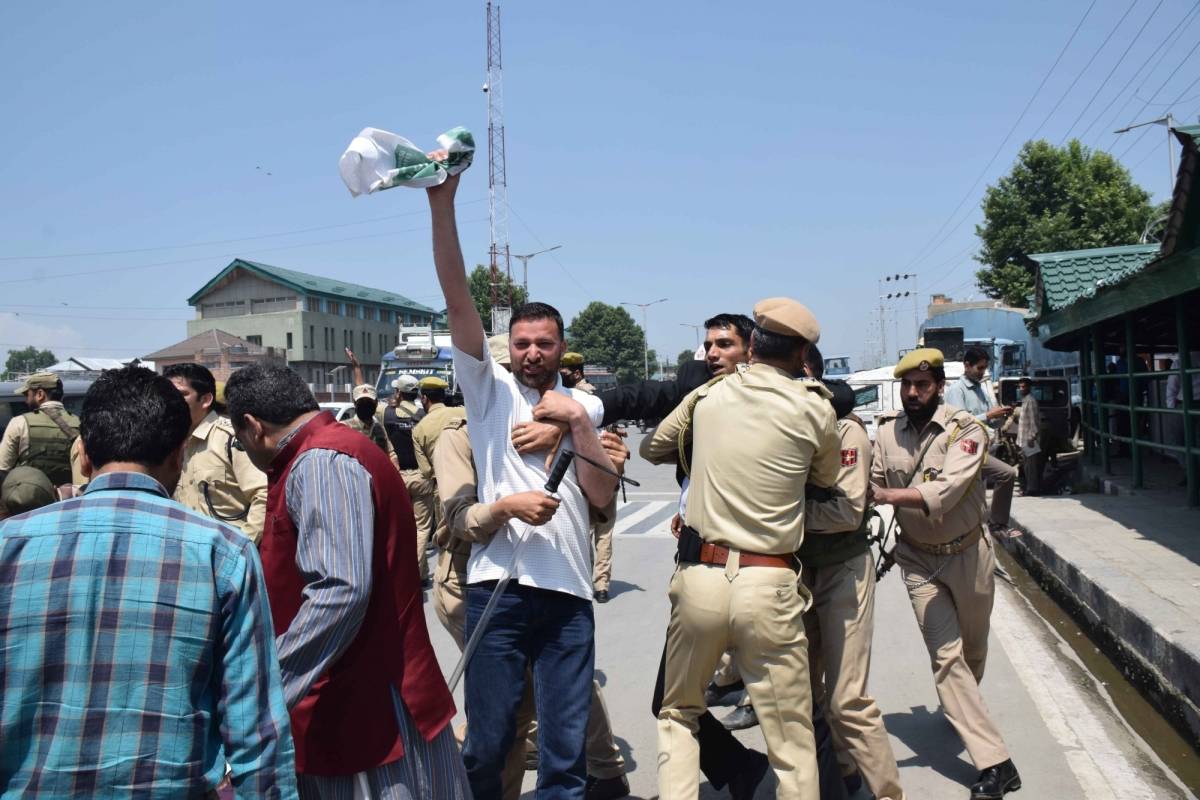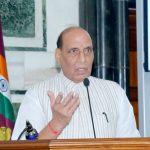The employees from the electricity department protested against the government, saying that their employers–in this case, the government–has not paid them their full salary even once in the last two years…reports Asian Lite News
A protest rally was held by residents of Gilgit Baltistan’s on Wednesday against state-backed exclusion and corruption in Pakistan-occupied Kashmir.
The deferral and non-payment of salaries continue to remain an issue of concern in the illegally occupied regions of Pakistan. Anti-government sit-ins have become a recurring phenomenon. One day it is the teachers, the next the doctors, and on other occasions, the employees of one or the other government department.
They lament that the Pakistan government deliberately deprives them of their rights and remunerations. And with a corrupt system in place, they have no option but to take to the streets.
The employees from the electricity department protested against the government, saying that their employers–in this case, the government–has not paid them their full salary even once in the last two years.
It is not an isolated case of discrimination. The people of the region, who have to perform exceedingly well–far better than their privileged compatriots from Pakistan–in order to get themselves recruited into government departments, are subject to different forms of state atrocities after joining them.
The Islamabad-stooges who have primarily been placed in the government departments of the region to surveil and marginalize the locals do not treat them on par with people or employees from parts of mainland Pakistan. Corruption is widespread and unscrupulous authorities, who are at the helm of affairs, never show even a modicum of intent to alter the status quo.

A person with a primary education being appointed as a teacher in a school in Gilgit Baltistan solely because he is a resident of mainland Pakistan is a textbook example of brazen exclusion — a case of state-sponsored marginalization. As per the documents and history books, the people of these regions gained independence in 1947. However, the fact is that they have been relegated to the status of second-class socio-economic citizens.
The Pakistan government had earlier reduced the non-development budget and wheat subsidy allocation to GB for the fiscal year 2022-23. Now, it is further trying to decrease the subsidy allocation to the region.
The people of Gilgit-Baltistan have shown a strong reaction to these major cuts in the subsidy which was introduced in the 1970s. The Gilgit-Baltistan region faces issues like high poverty index, lack of industry and significant agricultural land.
With a population of 1.5 million, the region has no job opportunities, industry, infrastructure, fund allocations and other facilities being enjoyed by the rest of Pakistan. The decision of the Pakistan government to withdraw subsidies and increase prices will further push Gilgit-Baltistan into recession. It will also endanger the food security of the region. (ANI)













